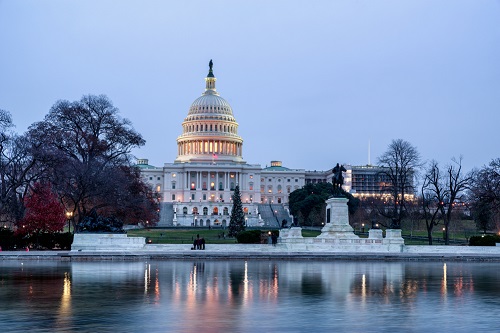Significant Wins for Independent Agents through Big ‘I’ 2019 Federal Advocacy
Key victories include a huge win giving independent agencies tax relief and a trifecta of Big “I” priorities made into law.

Key victories include a huge win giving independent agencies tax relief and a trifecta of Big “I” priorities made into law.

Big “I” member Quincy Branch is a member of the Federal Advisory Committee on Insurance Subcommittee on the Availability of Insurance Products.

Today, the U.S. Senate passed a legislative package that includes three key priorities for independent agents: Reauthorizing the Terrorism Risk Insurance Act, extending the National Flood Insurance Program and repealing the “Cadillac tax.”

Last week, the Big “I” and other industry groups, sent a letter to the U.S. Department of Agriculture and the acting director of the Office of Management and Budget, urging them to oppose any cuts to the Federal Crop Insurance Program.
The Big “I” is proud to announce that Indiana State Rep. Matt Lehman, a long-time active and outstanding Big “I” member, was installed on Dec. 13 as the new president of the National Council of Insurance Legislators.
Bob Rusbuldt, Big “I” president & CEO, and Charles Symington, Big “I” senior vice president of external, industry and government affairs, have once again been named among the top trade association lobbyists.

The tax would disproportionately affect middle-income Americans, women, seniors, working families and small businesses.
This week, the Big “I” joined a number of organizations in sending a letter to Senate leaders urging them to pass bipartisan legislation that would allow the program to continue to provide vital economic protections against acts of terrorism.
The acquisition aims to create significant productivity and speed advantages for agents and brokers.

When this legislation was introduced, the Big “I” was the only producer group to advocate that agents and brokers be excluded from this new onerous federal reporting requirement.
